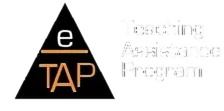Government Standards
Australian Curriculum
Social Studies - Grade 6
Assessment Exam - Australian Curriculum - Level 6 Humanities and Social Sciences| Inquiry and skills | eTAP Lesson |
|---|---|
| Questioning | |
| Develop appropriate questions to guide an inquiry about people, events, developments, places, systems and challenges
ACHASSI122 |
Questioning |
| Researching | |
| Locate and collect relevant information and data from primary sources and secondary sources
ACHASSI123 |
Investigate and Research Topics |
| Organise and represent data in a range of formats including tables, graphs and large- and small-scale maps, using discipline-appropriate conventions
ACHASSI124 |
Visually Representing Numerical Data |
| Sequence information about people’s lives, events, developments and phenomena using a variety of methods including timelines
ACHASSI125 |
Inventions |
| Analysing | |
| Examine primary sources and secondary sources to determine their origin and purpose
ACHASSI126 |
Suitable Research Methods |
| Examine different viewpoints on actions, events, issues and phenomena in the past and present
ACHASSI127 |
Argument and Persuasion |
| Interpret data and information displayed in a range of formats to identify, describe and compare distributions, patterns and trends, and to infer relationships
ACHASSI128 |
Deliver Oral Reports on Historical Investigations |
| Evaluating and reflecting | |
| Evaluate evidence to draw conclusions
ACHASSI129 |
Analyzing Historical Accounts |
| Work in groups to generate responses to issues and challenges
ACHASSI130 |
Collaborate to Evaluate Presentations |
| Use criteria to make decisions and judgements and consider advantages and disadvantages of preferring one decision over others
ACHASSI131 |
Statements & Claims |
| Reflect on learning to propose personal and/or collective action in response to an issue or challenge, and predict the probable effects
ACHASSI132 |
Write Reflective Compositions |
| Present ideas, findings, viewpoints and conclusions in a range of texts and modes that incorporate source materials, digital and non-digital representations and discipline-specific terms and conventions
ACHASSI133 |
Presenting Reports |
| Knowledge and Understanding | eTAP Lesson |
| History | |
| Key figures, events and ideas that led to Australia’s Federation and Constitution
ACHASSK134 |
|
| Experiences of Australian democracy and citizenship, including the status and rights of Aboriginal and Torres Strait Islander Peoples, migrants, women and children
ACHASSK135 |
|
| Stories of groups of people who migrated to Australia since Federation (including from ONE country of the Asia region) and reasons they migrated
ACHASSK136 |
|
| The contribution of individuals and groups to the development of Australian society since Federation
ACHASSK137 |
|
| Geography | |
| The geographical diversity of the Asia region and the location of its major countries in relation to Australia
ACHASSK138 |
|
| Differences in the economic, demographic and social characteristics of countries across the world
ACHASSK139 |
Recent Political Systems |
| The world’s cultural diversity, including that of its indigenous peoples
ACHASSK140 |
Religion, Society, and Culture The Rise of African Civilization |
| Australia’s connections with other countries and how these change people and places
ACHASSK141 |
|
| Civics and citizenship | |
| The key institutions of Australia’s democratic system of government and how it is based on the Westminster system
ACHASSK143 |
|
| The roles and responsibilities of Australia’s three levels of government
ACHASSK144 |
|
| The responsibilities of electors and representatives in Australia’s democracy
ACHASSK145 |
|
| Where ideas for new laws can come from and how they become law
ACHASSK146 |
|
| The shared values of Australian citizenship and the formal rights and responsibilities of Australian citizens
ACHASSK147 |
|
| The obligations citizens may consider they have beyond their own national borders as active and informed global citizens
ACHASSK148 |
|
| Economics and business | |
| How the concept of opportunity cost involves choices about the alternative use of resources and the need to consider trade-offs
ACHASSK149 |
Scarcity and Choice Looking at the Resources |
| The effect that consumer and financial decisions can have on the individual, the broader community and the environment
ACHASSK150 |
|
| The reasons businesses exist and the different ways they provide goods and services
ACHASSK151 |
Economic Systems |


